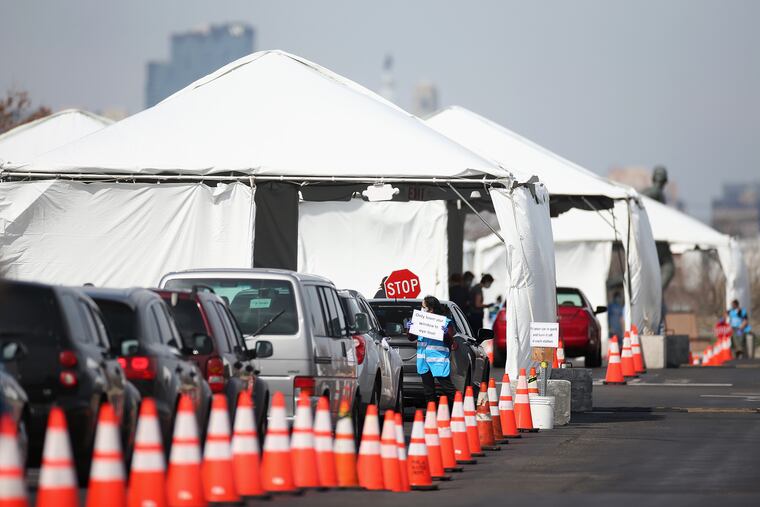Franklin and Marshall College tracks coronavirus cases in Pennsylvania counties
The team at the Lancaster college hopes to give Pennsylvaniana a better idea of trends in their area.

Every day, the Pennsylvania Department of Health releases data about coronavirus cases in counties across the state.
Experts at Franklin and Marshall College in Lancaster have begun turning that data into a series of graphics that show trends over time.
“We’re just adding a little context that the raw numbers do not necessarily show,” said Berwood Yost, director of the college’s Center for Opinion Research. “It was a way of informing ourselves how this epidemic is progressing in the state.”
» READ MORE: Johns Hopkins coronavirus dashboard offers a real-time window on a global pandemic
Johns Hopkins University in January began tracking coronavirus cases worldwide on a website that attracts 1.2 billion “requests” per day, defined as the number of times visitors have “accessed the underlying data” while visiting the dashboard. The site drills down by country and by province or state.
Yost said he likes the Johns Hopkins site, but wanted to give Pennsylvanians an even more detailed picture of what’s happening in their area.
Called the Pennsylvania Coronavirus Tracker (www.fandm.edu/opinionresearch/covid-19), it shows the number of cases in each of the counties, noting the growth in some counties, including those in the Philadelphia area. It also illustrates the rise in number of confirmed cases statewide as well as the number of negative tests.
Yost and his team of three other staff members each day download the state Health Department data, which is released at noon. (Counties also put out numbers, and reporting times may differ between the state and counties.) The college updates its site within a couple of hours after noon, he said.
» READ MORE: At Pa.’s coronavirus epicenter, Montgomery County’s Val Arkoosh offers facts and calms fears
Yost said he began preparing the site the day the first Pennsylvania case was announced, and his team launched it on Wednesday. They hope to look at trends over time, including how the state’s most populous areas fare compared with more rural areas.
“We’re trying to help people understand the story,” Yost said.